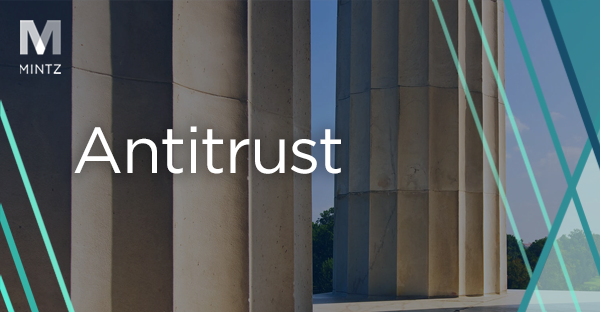U.S. Department of Justice Issues Second COVID-19-Related Business Review Letter, Approving Again of Competitor Collaboration
Yesterday, the DOJ issued its second COVID-19-related business review letter under its expedited COVID-19 procedure, allowing the collaborative efforts of AmerisourceBergen Corporation (“AmerisourceBergen”) to identify global supply opportunities, ensure product quality, and facilitate the supply of medications and other healthcare supplies. The DOJ’s letter mirrors its first COVID-19-related business review letter, allowing medical supply distributors to collaborate on the manufacture and distribution of personal-protective equipment and other medical supplies. You can read our blog post about the first business review letter here.
In its request letter, AmerisourceBergen stated that several U.S. agencies, including FEMA, CDC, HHS, and FDA, “have asked [the company] and other distributors to use their industry expertise and contacts to direct medications and other healthcare products to the areas of greatest need, to address supply chain shortages, and to apply their expertise to evaluate potential medication supply issues.” At the direction of the various federal agencies, AmerisourceBergen and the other distributors will engage in a number of collaborative efforts, several of which are similar to the proposed actions of the medical supply distributors.
These collaborative efforts include helping to “expedite distribution of medications and other healthcare supplies, including medications from the Strategic National Stockpile, to FEMA-designated COVID-19 hotspots,” and “provid[ing] FEMA and HHS with data necessary to do the above.”
While these proposed actions are fairly general, AmerisourceBergen made sure to highlight one specific initiative in its letter. According to its request letter, AmerisourceBergen has been asked by FEMA, DLC, CDC, and HHS to help distribute hydroxychloroquine—an antimalarial drug regularly discussed by the Trump administration as a possible, but not yet proven COVID-19 treatment—from the U.S. government’s strategic national stockpile to healthcare providers in areas of greatest need.
In response, the DOJ stated that it does not intend to challenge AmerisourceBergen’s collaborative efforts. Employing the same legal framework it used in its business review letter to the medical supply distributors, the DOJ first noted that private parties enjoy antitrust immunity when their conduct is (1) pursuant to an agreement with a federal agency or a clearly defined federal government policy and (2) supervised by a federal agency. Here, AmerisourceBergen’s proposed actions satisfy this standard, because the firm intends to distribute certain medications “[a]t the direction of FEMA, HHS, and other government agencies” and pursuant to a clearly defined federal program—“distributing products from the Strategic National Stockpile during a national emergency.”
Additionally, the DOJ found that AmerisourceBergen’s intention to work with other distributors to provide FEMA and HHS with relevant data did not raise antitrust concerns. The Department noted that, to the extent this conduct did not fit into the above-described two-part standard, it offered unique procompetitive benefits, making it consistent with the antitrust laws. The DOJ highlighted the fact that this data can, among other things, help the U.S. government secure and distribute medical supplies “that might not be available otherwise more immediately, efficiently, and effectively if the firms worked on their own or even bilaterally with [an] agency.” Moreover, according to the DOJ, the risk of anticompetitive harms is low, given the oversight of FEMA and HHS.
The DOJ also noted that it would evaluate any competitor collaboration without direct agency supervision under the rule of reason. Again, the Department agreed with AmerisourceBergen that its proposed conduct offers strong procompetitive benefits that outweigh any anticompetitive harms. For example, the company distributing medicine from the national stockpile will help increase short-term supply at a critical time of need, and the data sharing will help FEMA identify and combat potential shortages.
And, according to the DOJ, any anticompetitive harms that may arise from such conduct will be minimized by the safeguards that AmerisourceBergen will employ during its collaborations. Specifically, AmerisourceBergen has agreed that it will not use any competitor collaborations “to increase prices, reduce output, reduce quality, or otherwise engage in COVID-19 profiteering.” It will also limit the information that it shares with competitors and sequestrate competitively sensitive information that was shared during a collaboration once it ends.
With its second COVID-19-related business review letter, the DOJ has again made clear that firms should not view antitrust laws as an impediment to competitor collaboration during the COVID-19 crisis. Indeed, U.S. antitrust regulators appear eager to support firms as they navigate the uncharted waters of competitor collaboration during a pandemic.
The Mintz antitrust team is ready to help as well. Should you have any questions about this, about filing a request for a business review letter, or any other antitrust or competition law question, please feel free to contact any of the attorneys listed above.
Authors
Bruce D. Sokler
Member / Co-chair, Antitrust Practice



